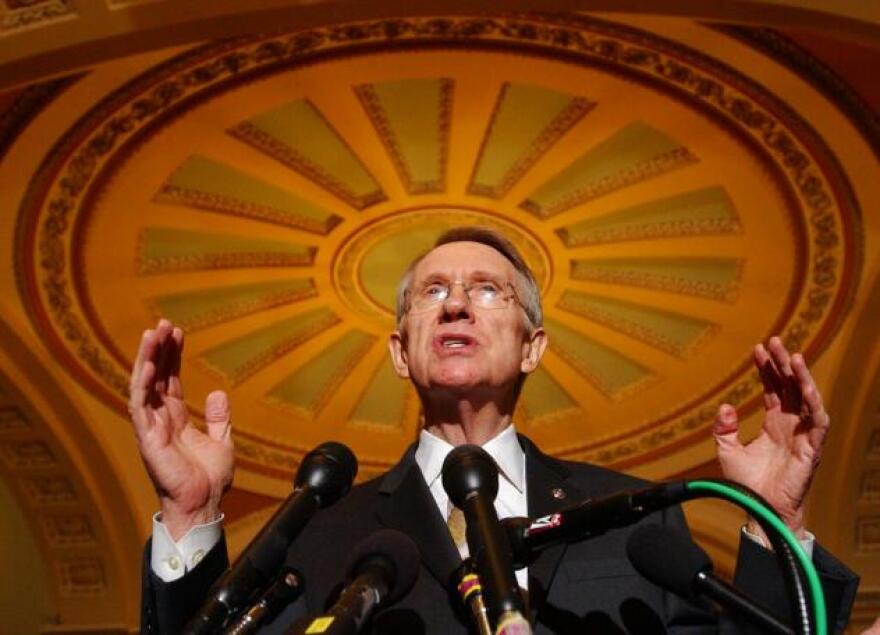We’re continuing the story of Harry Reid. It’s quite a story.
In his thirty years in the Senate, plus four in the House, one of his main interests was the environment. When he came to Washington, Nevada had fewer than 70,000 acres of protected wilderness. When he retired, it had well over three million acres. He pushed hard for renewable energy projects. He led negotiations to settle Truckee River water distribution for that part of Nevada, including Native Americans. Red Rock, Sloan Canyon, Gold Butte—he was central to all of these.
Another big environmental issue was Yucca Mountain. He knew the desert was a beautiful place, not simply a dumping ground. Both of us saw early that that’s how the federal government felt about us in the 1980s, and we fought the nuclear waste dump as hard as we could. It helped a lot that Harry was in the leadership.
The fact that he was in the leadership meant he played a large historical role in a position once filled by the likes of Lyndon Johnson, Mike Mansfield, and Robert Byrd. Soon after Harry took over as Democratic leader, President George W. Bush moved to privatize Social Security. Harry held the Democratic caucus together and helped block it. When the Great Recession hit, he helped Bush and then Barack Obama legislate to deal with it. His work passing Obamacare, when he needed to keep every Democratic vote in favor of it, led to criticism that he was buying votes. Actually, that was how Congress often worked—you represented your state, and you were expected to deliver for it, even in return for good legislation. He helped his fellow Democrats deliver. In his memoir, Obama perfectly described it when he said of the quest for votes, “Harry was doing Harry stuff.”
All of which made Harry a target. He knew it. He’d been one before, and he could take the heat. It was strange to see him as the subject of Republican attack ads, but that was part of politics. And he gave as good as he got.
We worked well together in the Senate — after all, we had been friends for a long time. When I retired and John Ensign succeeded me, they worked well together, too — and they had had a knockdown, drag-out election only two years before. As he said, he could fight, but he would rather dance.
Some of you listening to this may have despised him or what he stood for. He understood that. Claire McCaskill, a onetime senator from Missouri, told a story about him. She said she was voting against keeping him as leader. He said… ok. She said the reaction surprised her. He replied that he would rather have her vote, but he appreciated her honesty. When he died, she said that he was really good at getting things done. He would have appreciated that, too. He also would have appreciated the stories his former staff members have told about how much they loved him and loved working for him, and how good he was to them.
As for me, well, when you lose a friend of nearly sixty years, it isn’t easy. I’ll miss him. And I’ll say this: no one would have thought that poor little kid from a tarpaper shack in Searchlight would grow up to affect the world and become the most powerful Nevadan ever in Washington, D.C. But that’s what Harry Reid did.
Missed a part? Listen to and/or read it below:








